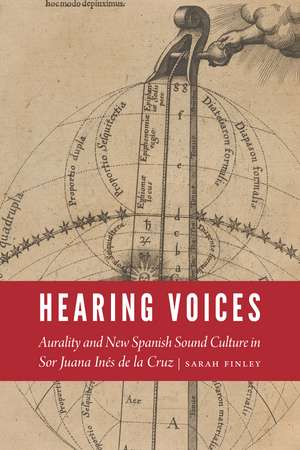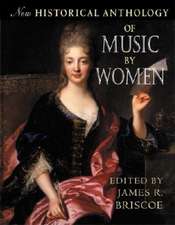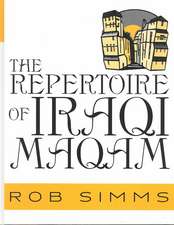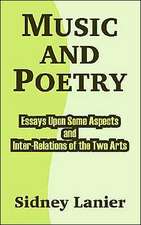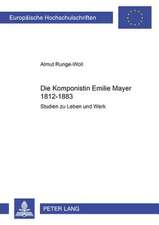Hearing Voices: Aurality and New Spanish Sound Culture in Sor Juana Inés de la Cruz: New Hispanisms
Autor Sarah Finleyen Limba Engleză Hardback – 31 ian 2019
Hearing Voices takes a fresh look at sound in the poetry and prose of colonial Latin American poet and nun Sor Juana Inés de la Cruz (1648/51–95). A voracious autodidact, Sor Juana engaged with early modern music culture in a way that resonates deeply in her writing. Despite the privileging of harmony within Sor Juana’s work, however, links between the poet’s musical inheritance and subjects such as acoustics, cognition, writing, and visual art have remained unexplored. These lacunae have marginalized nonmusical aurality and contributed to the persistence of both ocularcentrism and a corresponding visual dominance in scholarship on Sor Juana—and indeed in early modern cultural production in general.
As in many areas of her work, Sor Juana’s engagement with acoustical themes restructures gendered discourses and transposes them to a feminine key. Hearing Voices focuses on these aural conceits in highlighting the importance of sound and—in most cases—its relationship with gender in Sor Juana’s work and early modern culture. Sarah Finley explores attitudes toward women’s voices and music making; intersections of music, rhetoric, and painting; aurality in Baroque visual art; sound and ritual; and the connections between optics and acoustics.
Finley demonstrates how Sor Juana’s striking aurality challenges ocularcentric interpretations and problematizes paradigms that pin vision to logos, writing, and other empirical models that traditionally favor men’s voices. Sound becomes a vehicle for women’s agency and responds to anxiety about the female voice, particularly in early modern convent culture.
As in many areas of her work, Sor Juana’s engagement with acoustical themes restructures gendered discourses and transposes them to a feminine key. Hearing Voices focuses on these aural conceits in highlighting the importance of sound and—in most cases—its relationship with gender in Sor Juana’s work and early modern culture. Sarah Finley explores attitudes toward women’s voices and music making; intersections of music, rhetoric, and painting; aurality in Baroque visual art; sound and ritual; and the connections between optics and acoustics.
Finley demonstrates how Sor Juana’s striking aurality challenges ocularcentric interpretations and problematizes paradigms that pin vision to logos, writing, and other empirical models that traditionally favor men’s voices. Sound becomes a vehicle for women’s agency and responds to anxiety about the female voice, particularly in early modern convent culture.
Preț: 426.63 lei
Nou
Puncte Express: 640
Preț estimativ în valută:
81.64€ • 87.30$ • 68.07£
81.64€ • 87.30$ • 68.07£
Carte tipărită la comandă
Livrare economică 17 aprilie-01 mai
Preluare comenzi: 021 569.72.76
Specificații
ISBN-13: 9781496211798
ISBN-10: 1496211790
Pagini: 252
Ilustrații: 7 illustrations, index
Dimensiuni: 152 x 229 x 23 mm
Greutate: 0.54 kg
Editura: Nebraska
Colecția University of Nebraska Press
Seria New Hispanisms
Locul publicării:United States
ISBN-10: 1496211790
Pagini: 252
Ilustrații: 7 illustrations, index
Dimensiuni: 152 x 229 x 23 mm
Greutate: 0.54 kg
Editura: Nebraska
Colecția University of Nebraska Press
Seria New Hispanisms
Locul publicării:United States
Notă biografică
Sarah Finley is an assistant professor of Spanish at Christopher Newport University.
Cuprins
List of Illustrations
Acknowledgments
Introduction: Prelude
1. Harmony: Order and Authority in Occasional Poems
2. Resonance: Intersections of Music and Other Arts
3. Sound: Female Auralities in the Villancicos
4. Echo: Repercussions of Feminine Intellect
5. Silence: Transgressions and Feminine Revoicings
6. Coda: Re-sounding Voices
Notes
Bibliography
Index
Acknowledgments
Introduction: Prelude
1. Harmony: Order and Authority in Occasional Poems
2. Resonance: Intersections of Music and Other Arts
3. Sound: Female Auralities in the Villancicos
4. Echo: Repercussions of Feminine Intellect
5. Silence: Transgressions and Feminine Revoicings
6. Coda: Re-sounding Voices
Notes
Bibliography
Index
Recenzii
"Sarah Finley’s Hearing Voices: Aurality and New Spanish Sound Culture in Sor Juana Inés de la Cruz makes a noteworthy contribution to our understanding of the various ways in which sound is manifest in the works of Mexico’s celebrated seventeenth-century nun poet, Sor Juana Inés de la Cruz."—Colleen R. Baade, Tulsa Studies in Women's Literature
"Hearing Voices stands as a solid piece of scholarship that achieves its broad and straightforward exploration of establishing new paradigms for listening to Sor Juana’s oeuvre that exceed textual and linguistic limits."—Nicholas R. Jones, Bulletin for Spanish and Portuguese Historical Studies
“A much-needed and valuable contribution to the field of Sor Juana studies. The book’s focus on Sor Juana’s ‘engagement with non-musical sound’ significantly complements existing scholarship on musical sound, whether from a musicological or literary perspective. The broad approach to aurality and sound that the author undertakes—from harmony to resonance, sound, echo, and silence—will make it an indispensable study on the subject.”—Mario Ortiz, associate professor of Spanish at the Catholic University of America
“Sarah Finley brings a unique combination of expertise in early modern musicology and current sound studies to illuminate a web of connections among aesthetic, philosophical, scientific, gendered, and political contexts. This book will interest scholars in early modern European and Hispanic colonial literary studies and musicology and in gender and women’s studies.”—Emilie Bergmann, professor of Spanish and Portuguese at the University of California, Berkeley, and coeditor of Approaches to Teaching Sor Juana Ines de la Cruz
